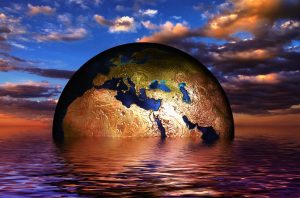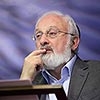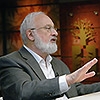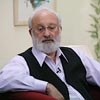“Israel – the Ever-Electing Country” (Times of Israel)

Michael Laitman, On The Times of Israel: “Israel – the Ever-Electing Country”
Nearly forty years ago, Jewish thinker Simon Rawidowicz published a book titled Israel – The Ever-Dying People. Since nearly four years ago, Israel has become the ever-electing country. For the fifth time in less than four years, Israel is going to the polls again.
The coalition that has just dispersed itself was truly unique, even by Israel’s standards. In this coalition, everyone sacrificed their principles for one common goal: preventing a common political rival from remaining Israel’s prime minister. And if the only reason to sacrifice everything is to prevent someone else from being in power, it is clear that the only purpose of this government was to stay in power.
As things stand now, it is clear that we cannot have a leadership; we cannot have a government. We cannot have a government because we do not have a country. There is no nation, no constitution, and no understanding whatsoever how to do it right. Instead, we are only trying to survive.
It is not as if we do not know how we should conduct ourselves. We have all the knowledge, but we never use it. To use it, we must build a nation, and then we will merit a state.
A nation is a collection of people, a community bonded by a common goal. Currently, millions of people have come to Israel, but they have no common goal, no sense of solidarity, community, or anything that defines us as a nation. To define us as a nation in the State of Israel, we need to know the purpose of the existence of the State of Israel.
First, we need to understand that merely serving as a safe haven for Jews does not work. We can already see that settling for a place where Jews can be secure and feel at home does not work; it is simply not enough. In truth, when Jews gather in one place, it starts a fire, and the State of Israel exemplifies it.
Therefore, for Jews to assemble at a certain place, they need to be prepared for it. They need to know where they are going and why.
This place, the State of Israel, exists in order to allow Jews to rebuild their nationhood, to turn themselves into a united Jewish people, and not a splintered mass divided into dozens of parties that despise one another and cooperate only in order to oust a common foe whom they hate more than they hate each other.
Only if this throng becomes a unified mass, bonded by mutual solidarity, it will merit the title “nation.” Unlike other nations, which have common national symbols or geographical characteristics, our only unifier is the ideology of unity itself.
When we merit the title “nation,” we will also know what our constitution is, since there will be only one item in it: unity above all differences. This is the uniqueness of the people of Israel, and where such a nation lives becomes the Land of Israel.
A few days ago, head of Hamas Ismail Haniyeh called on the Palestinians to prepare themselves to return to Palestine since Israel is in a state of political disintegration that reflects the dead-end to which the Zionist project has come. “The beginning of defeat,” he said, “is disintegration from within.”
Regrettably, Haniyeh is correct. In our current state, the State of Israel has no future.
Unless we take upon ourselves the only constitution suitable for the Israeli people, a constitution of unity and solidarity at all costs and above any division, our country will not be here for long. If unity is our goal, we will succeed in everything. If it is not, we will disintegrate and be driven out.















